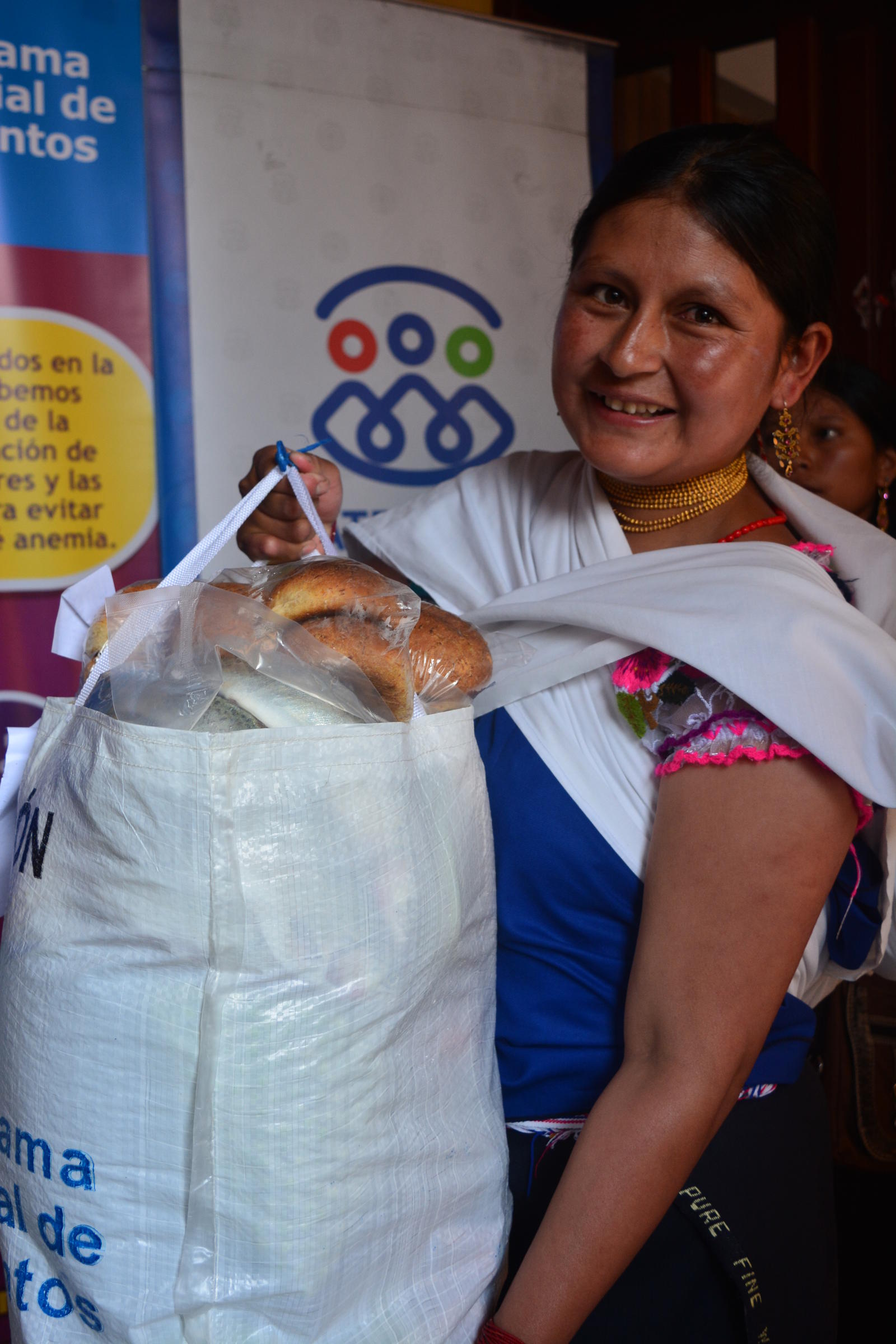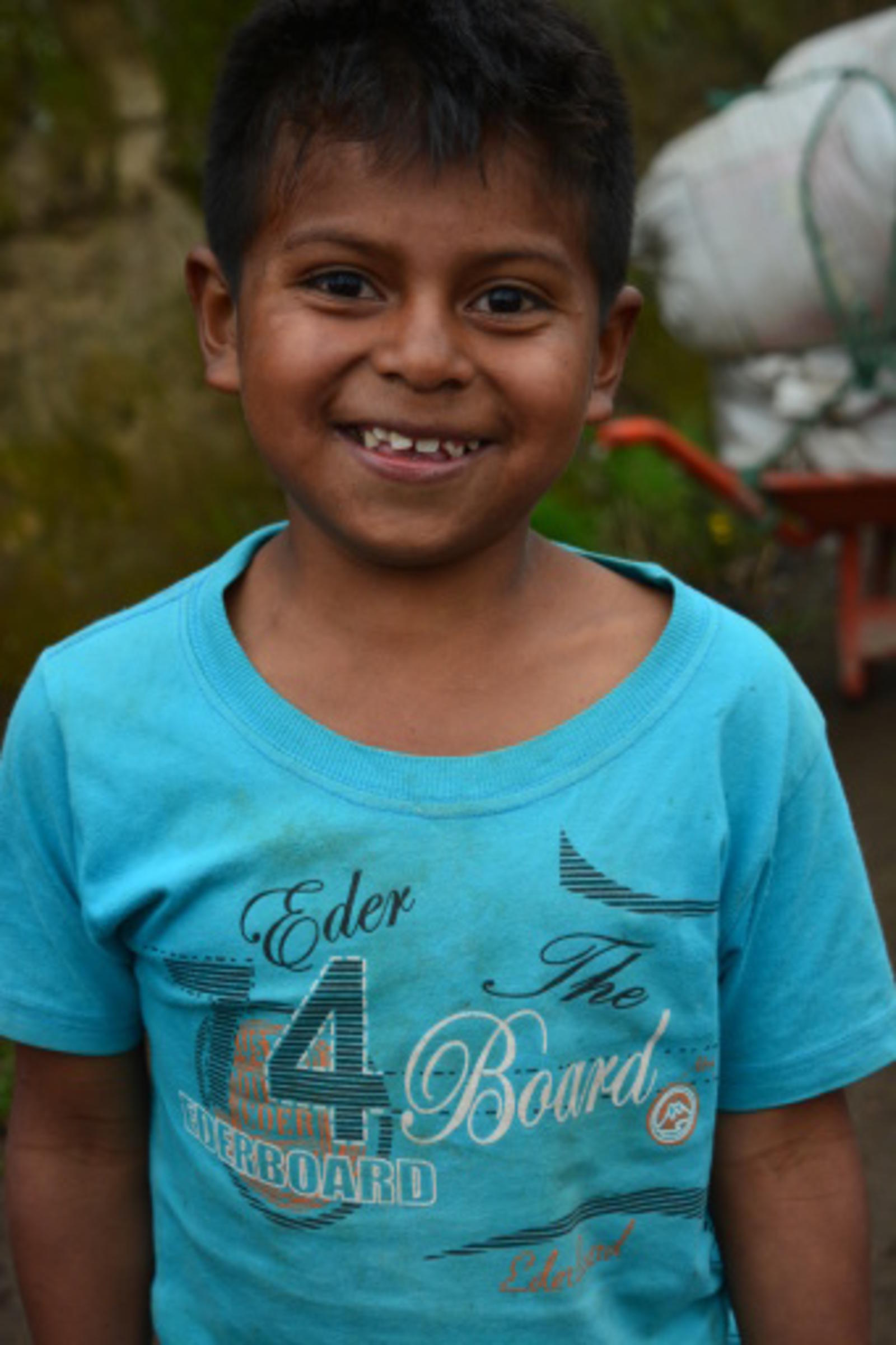September 3, 2018
"1,000 days" for child nutrition in rural Imbabura
The prenatal stage and early childhood is a very short and very dynamic newspaper, but decisive for cognitive development, language and social and emotional skills for people. It is therefore vital to ensure good nutrition and inadequate nutrition in the first three years of life to ensure the person's present and future well-being. With this premise, the "1,000 Days" project of the Sustainable Development Goals Fund (SDG Fund) was launched in the rural municipality of Imbabura, within the framework of its joint program for food and child nutrition in Ecuador. This initiative aims to improve the food and nutritional security of mothers starting from the moment of pregnancy.

"The 1,000-Day activity means being able to eat different things than we eat every day and for our babies to grow healthier," explains Nancy, a single mother, beneficiary of the program, who lives with her grandmother, mother, sister and nephews. in the town of Zuleta. "Now my children eat more vegetables, we eat better and we feel better too. The support of the program has been a relief in my life since I can now put healthy food on my table."
The 350 families that are part of the activity are given a monthly basket of foods that complement the necessary nutrients for their families. For the delivery of the baskets, it was linked to associations of small local producers who deliver the products to the mothers during the monthly training in health, hygiene, and food and nutritional security. To receive assistance, mothers and babies attend monthly check-ups at local health centers.
Now my children eat more vegetables, we eat better and we feel better too
Nancy
Single mother and beneficiary of the program
To guarantee the sustainability of the project once the program is concluded, the technicians worked with the Ministry of Agriculture and Livestock in the development of family gardens that will allow them to ensure their food and that of their family after the completion of the Activity. To this end, the World Food Program (WFP), one of the specialized agencies of the UN that implement the program, delivered seeds of vegetables, vegetables and local fruits, as well as field animals that allow the family to have access to food and receive additional income.
"As part of the United Nations Zero Hunger Challenge, WFP implements sustainable models, such as 1,000 days, that increase food security," explains Kyung-Nan Park, representative of the World Food Program. The Minister of Coordination of Social Development of Ecuador, Gabriela Rosero, insists that "we must pay special attention to the first 1000 days of the child, that is, from the beginning of pregnancy to two years of age, generating policies of nutrition to end hunger and ensure access to a healthier and more sustainable diet."

The approach
The ODS Fund program, developed between 2014 and 2017, contributed to the strengthening of local food systems, providing better access to healthy and nutritious foods, and increasing the nutrition of families under the National Strategy of Ecuador. The objectives of the program were based on the strengthening of public policies and support for the strengthening of local production.
The fundamental pillars of the program's approach were: 1) increase the productivity of quinoa and lupine crops by at least 30%; 2) prioritize the participation of at least 40% of women in associations, provide gender training and ensure equal distribution of food in households; 3) encourage the adoption of best practices for the sustainable management of natural resources and adaptation to climate change; 4) improve the patterns of food consumption of rural families in the areas of Ibarra, Cotacachi and Pimampiro in the province of Imbabura.






